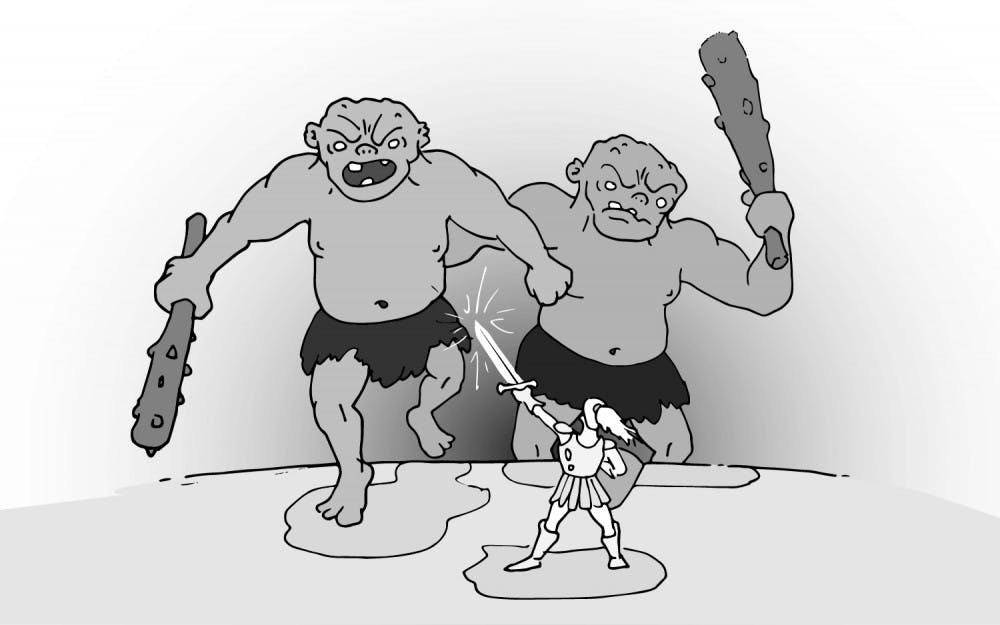Journalists are supposed to have thick skin.
Right?
As advocates of the written word, we have the right to write anything we damn well please.
And most of the time we do. But the tricky thing about opinions is that people tend to disagree.
Combine this with the omnipresent power of anonymity on the Internet, and there arises a serious and hotly debated issue: online harassment.
The Editorial Board full-heartedly agrees it happens to everyone, but it should be made known that for women and people of color, the criticism is often more heavy-handed.
“That’s because of the issues they talk about,” you may say.
If these topics are touchy, it’s all the more reason to be sensitive when responding in the comments section.
When we talk about the radical differences in humanity, why does it immediately turn into vicious arguments stacked up against a particular enemy or set of ideals?
Just look at Ayaan Hirsi Ali.
She is forced to deal with daily death threats and attempts on her life because she speaks out against extremism.
The idea of free speech, often the very reason that brash Internet commentators give for writing their uncensored opinions, should not be a catalyst for life-threatening offenses.
Internet trolls are not all-knowing pundits, but many act as if they are, which closes the gap between an otherwise intellectual conversation between author and dissenter.
Advocates for marginalized communities are targeted.
Combine this with millennial technology and an inadequate regulation system, and there’s a real dilemma.
“Being on social media has become, for better or worse, part of being a writer online. And the things you publish for one site have a ripple effect across all of your various social media profiles.It’s a workplace harassment issue that doesn’t stop at the workplace,” the Guardian’s Jessica Valenti wrote.
This is where the true problem lies. Internet forums and comments sections aside, free speech shouldn’t go so far as to actively locate and target an author’s personal life via Facebook, Twitter, Instagram or YouTube.
It’s a violation of a person’s humanity.
Though one could argue that many venerate and follow the social media accounts of the people they idolize, this should not correlate with those they hate as well.
Rape and death threats are tough pills to swallow. Everyone in his or her right mind agrees that this is a bad problem and that this kind of rhetoric has to stop.
But for so many people advocating against these deeply problematic and violent extortions, there’s not much real action being taken because rape and death threats are often deemed empty.
People throw up their hands in despair, proclaiming that we have hit a dead-end in terms of rectifying the situation.
What we fail to recognize is that there are no dead ends when it comes to decreasing Internet bullying.
Many times, it’s a maze of empty threats, but all of that stuff floating out there on the Internet is directed toward someone, and that someone, whether they choose to believe it or not, is affected by those comments.
It’s time to stop abusing the power of speech when observing others’ opinions.
Threats, combined with rude and crass personal bombardment, aren’t going to get us anywhere.
It starts with respect.
After all, the world is one big machine of ideas where everyone is entitled to their own opinion.




